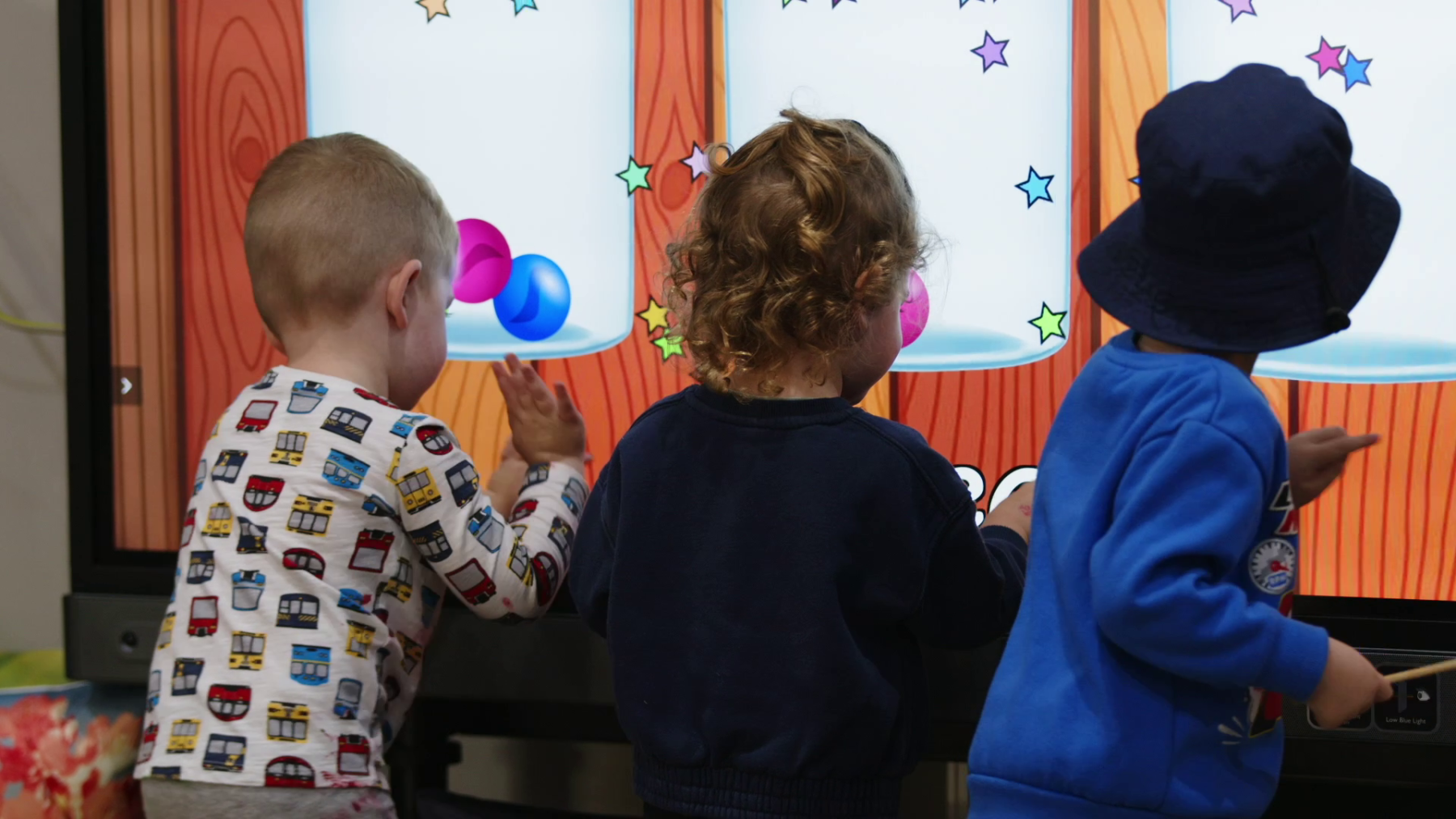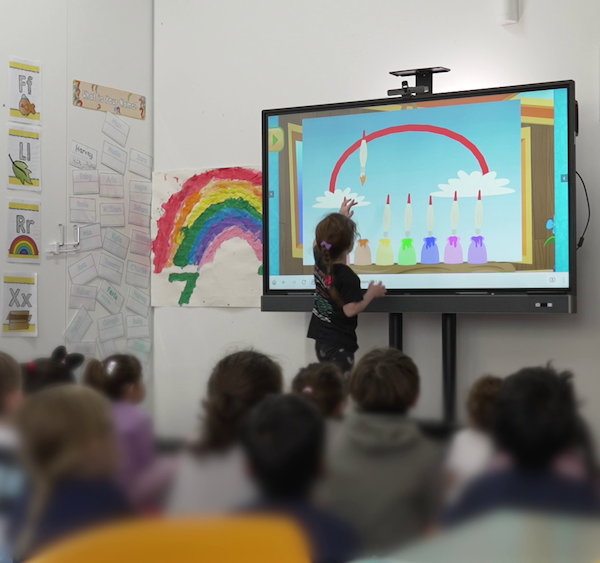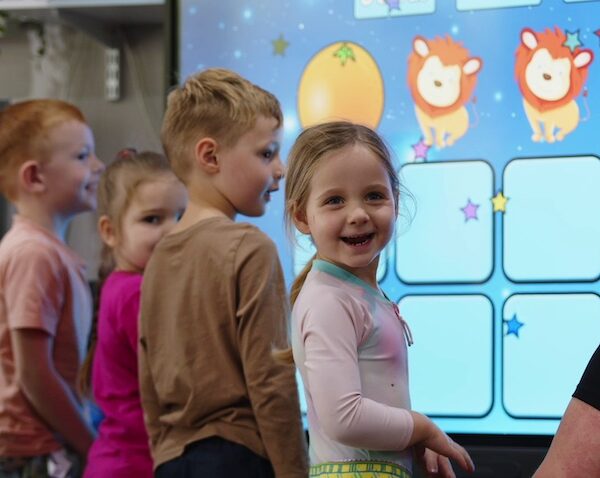Exploring the “T” in STEAM – how contemporary preschools are harnessing the power of tech

The importance of skills associated with the five key disciplines that underpin the acronym STEAM – science, technology, engineering, arts and mathematics – are well known, with Governments, educational institutions, workplaces and society at large familiar with the term.
In early childhood and long day care settings, however, educators can still struggle to confidently embrace STEAM topics and learning.
“STEAM and the skills associated with it are increasingly seen as the key to unlocking employment opportunities of the future, especially in the age of tech and AI” Jonathan Lee, Business Manager for Interactive Display ANZ at BenQ said.
“In preschool settings our experience points to a gradual increase in the delivery of inquiry based, intentional learning practices, which are made possible with the advent of flexible and affordable digital technologies.”
Technology as a STEAM and inquiry based learning enabler scaffolds better outcomes for children in these key areas but also supports educators to construct and deliver learning experiences that foster real growth.
T for technology – It’s not what you teach, it’s how you teach it
Unlike science, engineering, arts and mathematics, technology has not traditionally been viewed as an academic subject so it can be somewhat confusing to see it incorporated in the acronym STEAM, and can leave educators wondering “how do you teach technology?”
This is even more difficult when centres are still on the fence about time in front of screens.
Rather than explicit teaching of technology, educators across the spectrum of learning, from the early years to high school, instead focus on using technology to deliver STEAM experiences.
As such, the ‘T’ in STEAM is often more about how it is used as a tool to help children accrue skills in S,E, A and M.
“ Technology plays an important role in supporting educators to deliver better outcomes in science, engineering and mathematics in classrooms,” Mr Lee said.
“Although the academic rigours of these subjects are of course not part of a preschool curriculum, the idea that an interactive display can act as a stepping stone to introducing children to technology in a safe and measured way most certainly is.”
Whether it be boosting interactivity, encouraging collaboration, allowing for different modes of learning or preparing children more completely for their transition to school, modern interactive displays are delivering on the ‘T’ in a way not seen before. This is all while children continue to play and learn in a really fun way.
Inquiry based learning – leveraging tech to satisfy curiosity
Inquiry based learning is increasingly understood to be a form of active learning that starts by asking a question or set of questions about a thing, person or place that has caught the interest of a child.
For example, a child in the toddler room may stumble across a bug or a worm while engaging in outdoor play, connecting with their educator to ask more about their discovery.
Recognising the importance of mirroring and extending on children’s emergent interests, educators may then look to craft a broader learning experience for the whole class by taking them on a visual learning journey using an interactive display board.
“In a very short period of time an educator can transform the educational experience of a group of young children by capturing key topics of interest and presenting them, either through images, or voice, or video using the infinite power of the web on a display panel,” Mr Lee explained.
Popular examples of inquiry based questions the BenQ team hears:
- “How is Lego made?”
- “Where is the biggest building in the world?”
- “Where does rain come from?”
- “What colour is Mars?”
- “What does a Tasmanian Devil look like”?
Interactive displays central to both STEAM and inquiry based program delivery
The incorporation of “display” time into early learning programs is made easier by significant advances in interactive technology over the course of the last decade.
Challenges around installation difficulties, the calibration of the projectors and what to do if something wasn’t working, combined with a lack of connectivity, interactivity and collaboration opportunities rendered many of the older models unworkable in contemporary early learning environments.
“The conversations we have now with our early learning community of users are all about how modern displays can boost interactivity, encourage collaboration, allow for different modes of learning, prepare children more completely for their transition to school and maintain their physical wellbeing too,” Mr Lee said.
Modern interactive displays, like BenQ’s, are not only less cumbersome and more intuitive but have access to substantial libraries of educational activity materials that can support teachers and educators achieve outcomes for kindy and preschool children over and above prior years.
Eye health considerations support BenQ’s credentials as responsible innovator
For more than 10 years, BenQ has worked very hard to pioneer display technology that helps to strip out the harmful blue light emissions that are ever present in today’s handheld and large format LCD devices, as well as introduce first-in-class germ resistance and air quality monitoring.
Developed under the ClassroomCare® banner, consistent R&D is ensuring that health features are moving fast and keeping learning spaces safer.
“The T in STEAM and the importance of safely delivered, inquiry based learning are embodied in our culture and technology, and we look forward, as always, to supporting the early learning sector to meet their objectives in this important space.”
To learn more about how BenQ’s suite of interactive display boards can enhance your learning environment, click here or visit BenQ.com/en-au/education/preschool-education.html.
Popular

Policy
Practice
Quality
Provider
Research
Safety starts with supervision: responding to real risks in ECEC
2025-07-07 10:30:58
by Fiona Alston

Practice
Provider
Quality
Research
Workforce
New activity booklet supports everyday conversations to keep children safe
2025-07-10 09:00:16
by Fiona Alston

Policy
Provider
Practice
Quality
Jay Weatherill appointed to co-lead urgent review into childcare safety in Victoria
2025-07-07 07:24:04
by Fiona Alston














